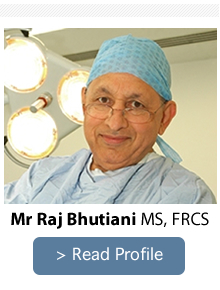ANAL FISSURE (Tear in the back passage)
It is a small tear in the skin of the opening of anus.
It is a common condition in every age group
How do I know if I have a fissure:
You do not need to go looking for one, as it would make itself clear by the feeling that something has just got torn in the back passage or feeling of passing razor blades, usually at the time of opening the bowels or soon after that.
It usually presents itself with very sharp pain and very mild bleeding from the back passage when opening the bowels.
A skin tag (sentinel pile) can develop at the site of the fissure. It is not a plie mass but just a skin tag.
Fissure can be ACUTE or CHRONIC
An acute fissure usually heals within six weeks or so and looks like a fresh tear.
A chronic fissure develops when the acute one fails to heal. The edges of the torn skin get scarred thus preventing it from healing.
Causes of Anal Fissure
Most often there is no obvious cause, but it is linked to constipation as passing hard stools and straining on stools can tear the anal skin.
It is common after childbirth and bouts of diarrhoea.
There are two sets of muscles around the anal canal, which control the passage of flatus and stools. They are called the Internal sphincter, which is not under voluntary control, and External sphincter, which is under voluntary control. Both these muscles must relax for bowel action, but due to a tear the internal sphincter muscle goes into spasm and makes it mare painful to pass stools setting up a vicious cycle. It also restricts the blood supply to the tear resulting in delayed or non-healing.
What to do if you feel you have a fissure:
If the feeling, pain does not settle in 4-5 weeks, see your doctor and ask to see a surgeon.
Make sure you are taking plenty of fibres and liquids
You can use over the counter medicines such as Fybogel to increase the bulk of the stool and Lactulose syrup to make the stools softer.
Local anaesthetic gel (Lignocaine gel/ Instillagel) applied locally before moving bowels can help.
Make sure you wash the area with water immediately after opening the bowels, as the chemicals in the stool cause a significant amount of burning pain.
If these steps have not helped, please see a surgeon



